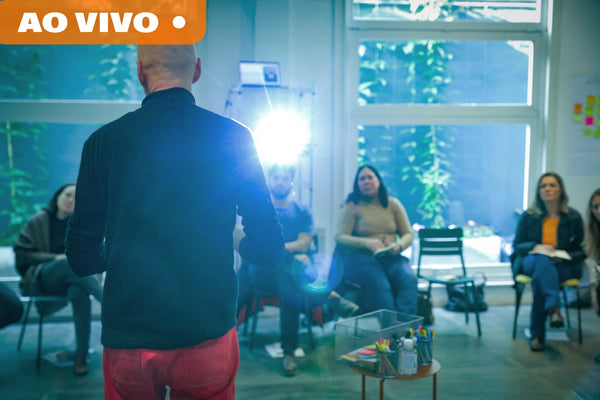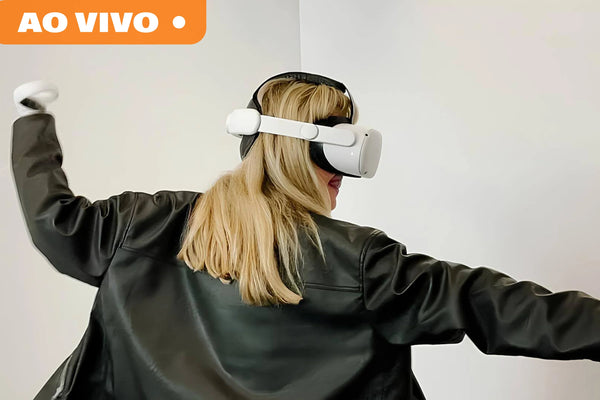
Algorithms, I Hate Them, I Love Them

Ler em Português
Algorithms, I Hate Them, I Love Them
(Or: how not to disappear in an optimized world)
There are days I wonder if I’m living… or optimizing.
Things we do for the algorithm to notice us—
Post at the right time.
Use the right words.
Add the trending sound.
Format the caption.
Smile, but not too much.
Be authentic… but not too real.
It’s easy to forget we’re not just trying to exist online - we’re trying to be seen by something that isn’t even human.
And that got me thinking:
Are we living, or just existing for the algorithm?
Lately, I’ve felt the modern dilemma press harder on my chest:
Do I play by the algorithm’s rules or risk being invisible?
What if nobody knows about me?
And if they “look me up” and find nothing—does that mean I don’t exist?
In a culture where visibility equals value, and silence is mistaken for irrelevance, it feels like an introvert’s hell.
If you don’t speak, you go unnoticed.
If you don’t publish, do you vanish?
The content we put “out there” builds—or doesn’t—our credibility.
And if there’s nothing out there, what does that say about us?
Or worse, what does it allow others to assume?
The Systems Behind the Screens
Books like Weapons of Math Destruction by Cathy O’Neil, Invisible Women by Caroline Criado-Perez, and Cassandra Speaks by Elizabeth Lesser helped me connect some uncomfortable dots.
The systems we trust to rank, rate, and recommend are not neutral.
They’re trained on biased data, missing data, or male-centric data.
They invisibilize. They amplify. They distort.
And in return, we contort ourselves to fit their mold.
Weapons of Math Destruction reveals how algorithms, cloaked in mathematical authority, reinforce inequality at scale.
They reward conformity. They punish difference.
They don’t just reflect reality—they reshape it.
Invisible Women shows that when women are underrepresented in data, they become underrepresented in the realities those algorithms generate.
If the system doesn’t see you—are you really there?
Cassandra Speaks reminds us that the stories we tell—and those we silence—shape what we value.
So what stories are we telling the algorithm?
And what stories are we leaving out?
Harari, Nexus & the Mirror We Created
Then came Nexus, the latest from Yuval Noah Harari.
He cuts through the noise with a deceptively simple definition:
“An algorithm is a methodical set of steps that processes information to make decisions or solve problems.”
He reminds us: algorithms aren’t inherently digital.
A recipe. A checklist. A military order. All algorithms.
But what’s changed is that we’ve now built non-conscious algorithms that can outperform us in decision-making—without intuition, emotion, or awareness.
In Nexus, Harari draws a powerful contrast between biological algorithms (us) and digital ones (AI systems like ChatGPT).
“Humans are biological algorithms. What happens when digital algorithms understand us better than we understand ourselves?”
That question haunts me.
Because if algorithms can predict our preferences, model our behaviors, and hold our attention - what happens to choice?
What happens to us?
This isn’t just philosophical - it’s emotional. Political. Professional.
We chase likes, follows, reach. We edit ourselves into versions the algorithm favors.
But have we asked what the algorithm feeds on?
Our time. Our identities. Our attention.
And what does it create in return?
Echo chambers. Addiction loops. A warped mirror of what we once thought was “us.”
So what now?
How do we stay human in a world that increasingly optimizes for machines?
Here are a few quiet, radical practices that help me reclaim presence:
✨ Post with intention, not just reach.
Say something meaningful - even if it isn’t “perfectly packaged.” Let the algorithm learn from your integrity, not your mimicry.
✨ Amplify the missing stories.
Share data that includes those left out. Be the anomaly in the system that signals there's more to see.
✨ Track your own patterns.
What behaviors have you adopted just to be seen? Do they serve you—or just the system?
✨ Log off with purpose.
Reclaim space from the machine. Take a walk. Talk to a friend. Write something no one will see. Reconnect with the part of you that exists beyond the feed.
✨ Be generous with your attention.
Comment with care. Reach out with gratitude. Let your digital presence be relational, not transactional.
Rebel against the quiet, constant nudging to be optimized.
Let’s live to be whole - not clickable.
Whole as in: not lacking.
Whole as in: nothing missing.
Whole as in: no algorithm, platform, trend, or metric needs to complete us.
Because when we live from a place of enoughness, we’re no longer seeking permission to exist.
We’re no longer chasing worth.
We’re no longer outsourcing our value to the machine.
Our worth has never lived in the algorithm.
It lives in our ability to imagine, to question, to create—and to connect deeply, beyond the screen.
Let’s live like we know that.
And maybe, just maybe, the algorithm will start learning from us.



